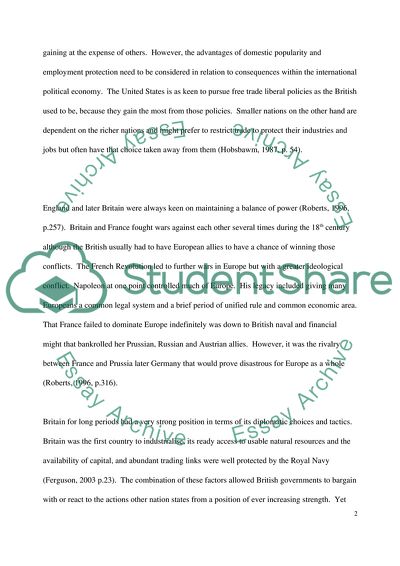Cite this document
(“Mercantilist theory Essay Example | Topics and Well Written Essays - 1000 words”, n.d.)
Retrieved de https://studentshare.org/sociology/1551832-mercantilism
Retrieved de https://studentshare.org/sociology/1551832-mercantilism
(Mercantilist Theory Essay Example | Topics and Well Written Essays - 1000 Words)
https://studentshare.org/sociology/1551832-mercantilism.
https://studentshare.org/sociology/1551832-mercantilism.
“Mercantilist Theory Essay Example | Topics and Well Written Essays - 1000 Words”, n.d. https://studentshare.org/sociology/1551832-mercantilism.


